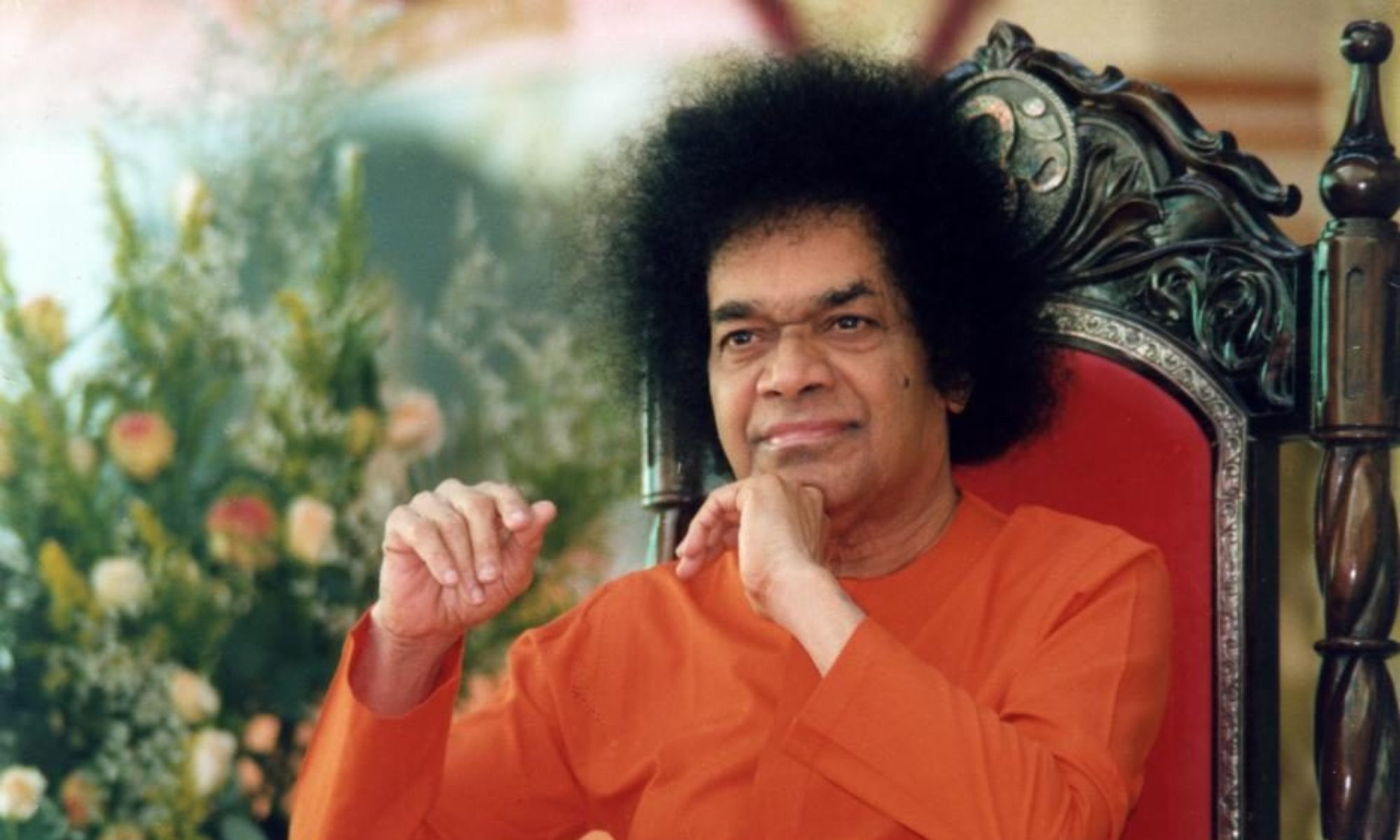In this edition
- Upcoming events
- Geetha Vahini
- Life and Message of Buddha
- Overcoming Karma and experiencing Ananda
- Devotional activities in Chicago and suburbs
Upcoming Events
- Sunday June 02, 2019, Membership Meeting
- Bhajan starts at 10:30 AM followed by Membership Meeting
- Time: 09:30 AM – 12:30 PM
- Venue: River Forest Community Center
- Saturday June 29, 2019 Bread Truck Project
- Quarterly sandwich packing for Break Truck project
- Time: 07:00 AM – 09:00 AM
- Venue: Orland Park, IL
- Tuesday July, 16, 2019, Guru Poornima Celebrations
- Guru Poornima Celebrations
- Time: 07:30 PM – 10:30 PM
- Venue: Sant Nirankari, 1S750 Route 59, West Chicago
Geetha Vahini
Man has three chief instruments: the mind, the intellect, and the senses. It is when these three work in unison and co-operate with one another that either ‘immersal in the flux’ or ‘liberation in the knowledge of the Atma,’ is realized. Krishna anticipated that Arjuna will be puzzled to know what will happen “when which operates with which.” So He himself provided the answer. “Arjuna,” He said, “when the mind co-operates with the senses, you enter into the flux called samsara (change). When it subordinates itself to the intellect, you attain the knowledge of the Atma. One path leads to Samsara-praapthi (worldly fulfillment); the other, to Atma-praapthi (fulfillment of the soul). The intellect must resolve, the mind must carry out the resolution so made. That is the correct procedure.”
The Indriyas or senses have to be fully destroyed. That is the hallmark of a Sthithaprajna. So when all beings are experiencing night, the Sthithaprajna would keep himself awake. When all beings are awake, the Sthithaprajna would be asleep. The literal meaning of this is that what is night for one is day for the other. But that would sound absurd. It would mean the Sthithaprajna is a person who sleeps during the day and keeps awake at night.
The inner meaning of this statement is very profound. Ordinary men are vigilant in affairs that concern the senses that arise out of this world. Wakefulness for them is the care they bestow on worldly pursuits. But the Sthithaprajna is unconcerned with these very things. He is, so to say, asleep. What does sleep mean? It means the happiness resulting from inactivity of the senses. And vigilance? It means yielding to the senses, and catering to them. When ordinary men are pursuing the senses and their demands, the Sthithaprajna is asleep. This can also be put in other words: Forget the Atmasthithi and you relapse into Dehasthithi, from the Atma conscious-ness stage you fall into the body consciousness stage.
This is what happens to the ordinary man. He sleeps in the Atma stage and wakes into the Dehasthithi. The Sthithaprajna’s case is different. He sleeps in the Deha consciousness and wakes in the awareness of the Atma. He will not awake even by mistake, in the sensory world, the world where the ordinary man is most vigilant! This is the inner meaning. It is far from the literal meaning, which, if taken as true, would entitle thieves, watchmen and others to the name Sthithaprajna! For all these keep awake at nights and sleep during the day! Only those who have given up traces of desire and become mere instruments can achieve Shanthi (peace). Krishna ends the description of the Sthithaprajna with an emphasis on “Kaama naa-thyaga” the giving up of Desire.
To man sorrowing on the battlefield of life, bewildered by the attractions and the distractions, not knowing where to turn and which road to take, Madhava taught this Sankhya Yoga (II chapter). The other chapters are like commentaries on the teaching in this chapter. “Arjuna! Prepare yourself for giving up the mind, for being merged in your own Self. Withdraw the mind from the sabda (sound), sparsa (touch), roopa (form), rasa (taste), gandha (smell) categories, the Five Elements. Then you become a Sthithaprajna,” said Krishna. In this Second chapter He elaborated (in the 11th to the 38th sloka) on the Atma Thathwa (Atma Principle), in a simple easily understandable style. Then from the 39th to the 75th sloka, He taught the Dharma-Karma (righteous action) attitude that is essential for attaining the Godhead, an attitude that is based on the Karma Yoga (Yoga of action) which itself is embodied in the Samatha-buddhi (equanimity), already prescribed.
-Excerpts from Geetha Vahini
Life and Message of Buddha
Buddha was a pure hearted person. When he was born, a renowned astrologer had predicted that he would be either a great king or a great renunciant. On knowing this, Buddha’s father, Shuddhodhana arranged to keep from his son’s sight all unseemly sights of happenings in this world. From his childhood, Buddha could not bear the sight of anyone in pain. He was saddened at the sight of the old ill-treating the young, of men in authority harassing the people and the big fish swallowing the small ones. He realized that it was wrong for anyone to cause harm to others. Hence he declared, “Ahimsa Paramodharmah” (Non-hurting is the Supreme Dharma). No one should cause hurt to others by speech, action or in any other way. According to him true Dharma (Righteousness) consists in refraining from causing harm to anyone in thought, word or deed. Truth is God. Buddha taught that people should adhere to truth and uphold it.
Among Buddha’s teachings the foremost were Sathya (Truth) and Dharma (Righteousness). These two are the teachings of the Vedas, “Sathyam vada, and Dharmam chara” (Speak the Truth, practice righteousness).
The name given to Buddha at the time of birth was Sarvaartha Siddha. Shuddhodhana got his son married to Yashodhara, daughter of his brother-in-law, Shuddhabuddha. He apprehended that his son may become a recluse and turn away from the world if he was left to himself. But Buddha did not feel that a married life was the proper thing for him. Buddha felt that man was bound by various attachments in worldly life. Friends and relations were the cause of this bondage. Various human relationships were the cause of sorrow in the world. So he declared, “Sarvam duhkham, duhkham” (All is sorrow). He also declared, “Sarvam Kshanikam, Kshanikam” (everything is momentary). “Sarvam nashyam, nashyam” (everything is perishable).
Although all Avatars (divine advents) have been preaching only good things, men today are content to observe their birthdays without following their precepts. Buddha did not attach any importance to yajnas and other religious rituals. The reason is he felt that it was more important to ensure that the five sense organs were pure to begin with. Buddha sought to find out why the mind gets disturbed. He could not bear to see anyone suffering. He was deeply grieved at the sight of persons afflicted with old age. He was intrigued at the sight of a dead body. None of these natural happenings gave him peace of mind. Buddha considered the movements of the planets and the sun and the stars as natural phenomena. He undertook many spiritual exercises to find out what transcended these natural phenomena. Failing to find the answers by these exercises, he approached many great elders to find the answers. None could give him satisfactory answers. Ultimately he reached Gaya and sat under a banyan tree to meditate on the problems that worried him.
In a life filled with desires, the pleasures one seeks are inevitably followed by grief and disappointments. All unrighteous actions lead to sorrow. It was for this reason that Buddha emphasized the need for discrimination. The first prayer, “Buddham Saranam Gachchaami” is a call for cultivating wisdom and discrimination, the Buddhi. But unless the power of discrimination is used for doing right action for the good of society it is of no use. Hence the second prayer, “Sangham Saranam Gachchaami” (I surrender myself to society). What is this right action that must be done? That is indicated by the third prayer: “Dharmam Saranam Gachchaami” (I take refuge in Dharma). To reach your goal, the royal road is Dharma—Righteousness. It is only when these three are combined—Wisdom, social service and Righteousness—that there is fulfillment in life.
–Baba’s Divine Discourses
Overcoming Karma and experiencing Ananda
Once a yogi who was engaged in severe ascetic practices prayed to Narada to bring back from Vaikuntha information about the date of his becoming entitled to enter into the Lord’s abode. When Narada he pleaded on behalf of the yogi for a date. The Lord replied, “Tell him that he will be coming here after as many more births as there are leaves on the tree under which he is currently doing penance.” When Narada broke the demoralizing decision of the Lord, contrary to his expectations, the yogi was transported into a realm of joy; he was not dispirited in the least. He jumped and danced in glee. He was lost in the thrill of his dream being so near actual fulfillment. He was filled with ecstasy thinking of the Lord and offering Him his profound gratitude. The Lord was so pleased with the joy of the yogi that He himself appeared before him and offered him Vaikuntha immediately. But, the yogi said, he would bide his time, for, he did not like the Lord’s word, which Narada had brought, to be falsified! The Lord now had to convince him that good deeds, noble thoughts and sacred feelings can wipe out the tracings of bad; therefore, by his enthusiastic acceptance of the Lord’s will he has actually overcome the consequences of past actions.
The Law of Karma is not an iron law; by dedication and purification, which invites Divine benediction, its effects can be modified, and its rigor mitigated. Do not despair; do not lose heart. When vices hold sway over your heart it becomes foul and sooty; the flames of kaama, krodha and lobha (desire, anger and greed) char the heart. What quenches these flames is the Grace of the Lord. Grace confers bliss (anandam), which the evil tendencies (Kama, krodha and lobha) can never confer.
Devotional Activities in Chicago and Suburbs
- Every Monday
- Bhajans in Aurora Shirdi Mandir from 07:00 PM – 08:00 PM
- Every Wednesday
- Bhajans in Hoffman Estates from 07:30 PM – 08:30 PM
- Every Friday
- Bhajans in Oak Brook from 08:00 PM – 09:00 PM
- First Saturday of the month
- Bhajans in Glenview from 04:30 PM – 05:30 PM
- Saturday June 29, 2019
- Paduka Puja in Bolingbrook from 10:30 AM – 12:30 PM
- Sunday June 23, 2019
- Bhajans in Oakbrook from 06:30PM – 07:30 PM

